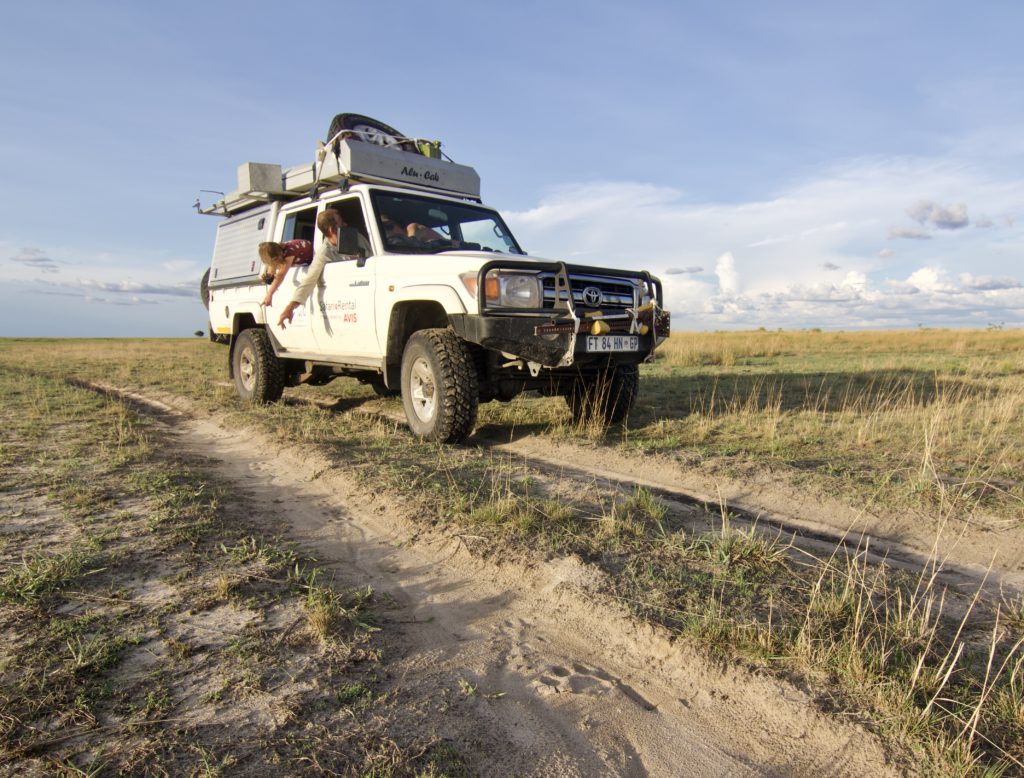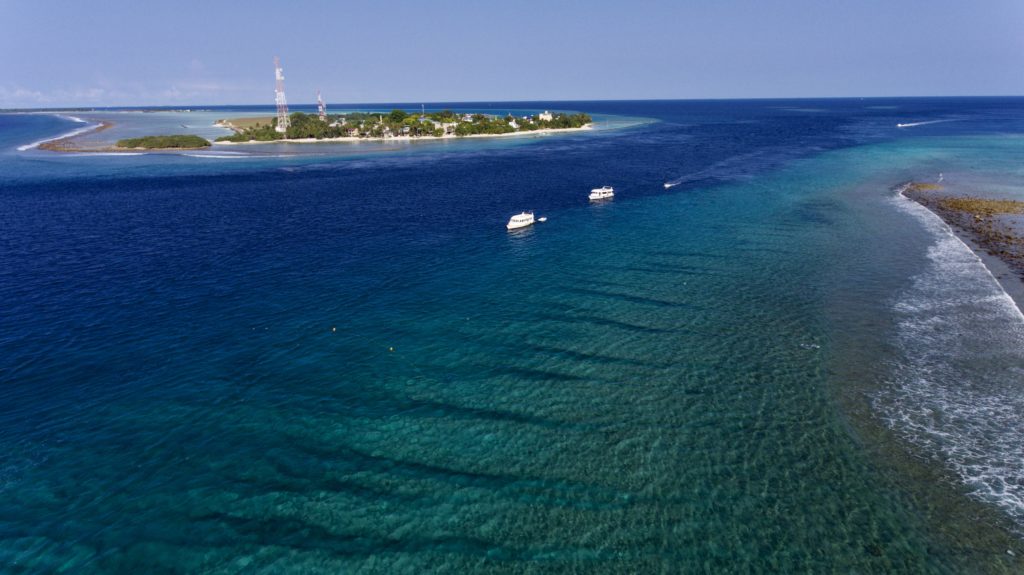It’s been an unpredictable time since March 2020. I still remember clearly the first e-mails and news reports I was reading about this virus that was going to become a global pandemic. With two weeks left of a South Africa trip to run and Mozambique to follow, I didn’t really believe the rumours I was hearing. Then things moved fast, it went from cancelling the Mozam leg of the trip, to suggesting everyone get a flight out as soon as possible as South Africa was going into hard lockdown within the week.
Would this be the end of travel as we know it?
After some serious lockdowns in South Africa I got the opportunity to go on an African camping Safari with my sister and her family, which started a fortunate year of traversing the globe. I know this wasn’t possible for many, but it has meant that I can share a little of what I learnt for when you next travel.

A safari trip to Namibia, Zambia and Zimbabwe kicked it off, then next up was a surf coaching boat trip in the Maldives. After that it was off to the UK where I got to enjoy a hotel quarantine for 10 nights. Then to the US, Portugal and France to coach coach professional surfers on the WSL Challenger Series, followed by another trip to France a few weeks later. So it’s suffice to say, I’ve had my fair share of Covid travel experience.

If you want to read more about my travels you can do so below, but you are here because you want to get out and explore yourself, so here is my advise to make travel as smooth sailing as possible. It’s not the same as it used to be, but at the same time it’s not too bad.
My biggest recommendation for travel right now, is what I’d call “slow travel”; it’s enough of ticking boxes of countries, it’s time to go somewhere, immerse yourself in the place you’re going and enjoy the smaller things in life.
Check-list before you travel
- Can I currently enter the desired country? The rules change fast! Gov.uk gives a good breakdown of travel advice for each country.
- The rules will be different for whether you are vaccinated or not, so follow the appropriate advice.
- Even if you are vaccinated, the vaccination and country you were vaccinated in may need to be validated in the country you are going to. This is for countries which require a ‘vaccine pass’ (usually an app with a QR code) where you will need to upload your documents to. You may need to apply in advance for your vaccine to be accepted (in France this was required) so do your homework.
- If there is a quarantine period, how long is it, how much will it cost and where do I book it? Get it all sorted out before you go.
- What test do I need to travel (PCR, Antigen or none)? Check both the destination and the airline rules.
- How long does it take to get my results (there are rapid tests available for both, but the alternative can be as long as 5 days).
- When do I need to get tested. Most countries it is a given time frame before departure, for example 72 hours. Others have a given time frame before arrival in the country, but this can be unreasonable and I know people that have got into countries as long as they used the stipulated time frame before flight departure time.
- What other Covid documents do I need? Most countries have some form of ‘track and trace’ whether it is a QR code, an app or a form you fill in on arrival.
- If you do test positive for Covid, most airlines state that you can’t book a flight within the next 10 days, even if you were to test negative. So find out the airline rules if this is a factor for you. These rules will keep changing.
Tips for Travel
Tip #1 Do your own research on what the requirements are to get into a country, there is usually an official government website, as well as a load of blogs. But the rules frequently change, so look for the official government reference that you can refer to when you are trying to check-in for your flight.
Tip #2 The airline will have information on your requirements as well, so cross reference with their links. Upon leaving South Africa in November, Emirates required a PCR test regardless of the destination countries requirements.
Tip #3 Whether it be a PCR or Antigen test, testing for travel is different to your usual test. The main thing being that you pay for it. On my first few tests they required my passport number, but they don’t seem to be doing that anymore. And to be honest, the actual check they do at the airport is a very quick look over your test result. But this could change as it moves towards QR codes.
Tip #4 Masking up. Wear a really comfy mask. Some airline stipulate medical masks only, and that they get changed every few hours, others are more relaxed on the rules. But on the flight and in the airport, unless you are eating or drinking, you’ll be wearing a mask non-stop.
Tip #5 Book a flight with an airline with good terms for refund/voucher if either they or you have to cancel the trip. Remember you could test positive for your trip, and you’d only get those results 2 days before you fly. Same goes for accommodation, find out their policy for if you can’t make it because you test positive so can’t fly.
Tip #6 Be prepared to stay longer than you intended. Things may change, so if it was meant to just be a holiday, throw that laptop in, just in case you end up working remotely. I mean it wouldn’t be so bad working from tropical paradise would it?
All the best for your travels, get out there and travel responsibly.
If you are interested to read a little more into some of the silly details of travelling in Covid times, have a read below.
My travels in 2020 and 2021
Fast forward a few months after Covid hit, to November 2020 and I was on my first international flight, in this case to neighbouring Namibia to join my sister and her family on a 4*4 safari into Southern Africa and this is where I first encountered the new world of travel. Rule #1 of post Covid travel, don’t trust what you hear, do your own research and make it thorough and current. Namibia was fairly easy, get a PCR test 72 hours before departure, arrive at the airport extra early, fill in a special Covid form at the airport, wear a mask until you leave the airport you arrive at. Easy!
Next stop Zambia, this time by road, with the border having opened just a few days before we got there. Zambia only required us to having had a PCR test within 7 days, so we didn’t need a new one. Then after travelling around it was another PCR test to get into Zimbabwe, spend a night and fly back to South Africa within the 72 hours of doing the test.
At the airport to fly to South Africa was our first real hiccup, the PCR form was correct, but on the accompanying letter authorising the form the doctor had left out the date that my sister had done the test. They weren’t too sure and had to call South Africa. Who knows if they got through to SA but they let us on the plane and we quickly separated the letter from the test result to keep it simple on arrival in SA. Smooth sailing.
Next trip at the end of March 2021 was surfing in the Maldives. Rumours were that it was uncrowded and doing a boat trip meant we didn’t need to quarantine (what a score), but take note to enter the country you needed a QR code generated by me filling in some online form. I guess it was to ‘track us’, but one thing is for sure, without it you weren’t getting in. This time at the airport at the check-in counter I saw a few people getting rejected, they didn’t have the right paperwork so couldn’t get on the plane and no amount of tears was going to stop that.
The rules are strict, as long as you know what they are. In the Maldives the system to get tested was jacked up, for $50 each they came to the boat and did the PCR tests on board, results within 24 hours and all sorted to return home.
Next stop in May was travelling to the UK from South Africa, a red-listed country. This meant a 10 night hotel quarantine from hell. That would be a separate article on its own, but not what we are here for. No PCR test was going to help me get into the UK, I mean I still needed it but then I had to get two more of them in the hotel as well.
Leaving the UK and need a PCR test? Turns out the third world countries cater for this far better than the UK or later the USA as I found out. A friend who ordered his PCR test for over £100 and sent it off to get his results never got the results. Nothing a little photoshop and creativity couldn’t sort out to get them on the flight and into their desired destination. How often was this happening?
Going to the US from the UK to go and coach (surfing) on the “Challenger Series” world tour was the first time I hit a bit of a grey patch, did I need a PCR or Antigen test to get into the USA? Luckily just an Antigen, so I did it at Heathrow, got my results in 30 minutes and could board check-in! Too easy (as long as I tested negative of course).
Covid tests and vaccinations
PCR is the gold standard that will get you into any country, whereas the Antigen test is only accepted by certain countries. The benefit of the Antigen test for a traveller being that you get the results back often within 2 hours (compared to 24 – 96 hours for PCR) and it usually costs significantly less than the PCR test! That’s another thing, the price per test varies hugely from country to country.
After my trip to the US and upon return to Europe the vaccination rules started to come into play. Despite many people advising differently my research showed clearly that Portugal only required me to have an antigen test, and this was correct, no quarantine and smooth sailing on arrival. France would have been different, and with their Anti Covid app lots of people needed to convert their vaccination pass for it to be valid in France.
Why was I even travelling? Well aside from the very first trip, the rest was for work. Both for Ticket to Ride in the UK and then travelling with a group of 160 surfers on the WSL Challenger Series and their entourage, so we got to hear everyone’s different experiences and stories. But now, well, travel is opening up, and people are getting itchy feet to get out there and see the world.
The red list and quarantine rules are slowly subsiding, but definitely haven’t stopped completely. Places like Indonesia and Australia have been closed to tourists for almost two years now.
Feel free to post any questions below.